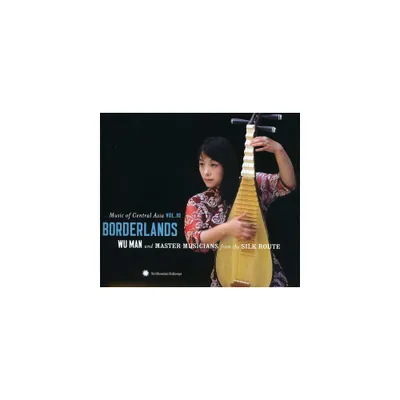Home
Music from Central Asia Uzbekistan on the Silk Road
Loading Inventory...
Barnes and Noble
Music from Central Asia Uzbekistan on the Silk Road
Current price: $18.99


Barnes and Noble
Music from Central Asia Uzbekistan on the Silk Road
Current price: $18.99
Loading Inventory...
Size: OS
*Product Information may vary - to confirm product availability, pricing, and additional information please contact Barnes and Noble
Licensed from a small Uzbek label, this album of blind singer
Ochilbek Matchonov
is surprising in its range and execution.
Matchonov
plays an instrument or two, but the instrumental portion is largely handled by a set of five musicians providing a particularly dense layer of sound behind him. The interplay between the double clarinet and the arsenal of strings (dotar, ghijak, tanbur) is similar to much of the music of the central steppes, but with more energy and complexity than, for example, the Uighur or the Mongols. Many of the same elements are present, but the tempo is kicked up a notch and the use of counterpoint and interlocking melodies is nearly perfected. Over the top of this wall of sound is
and his vocals. The vocals are sometimes on and sometimes off, but for the most part can hold their own with similar stylists. There are elements of the Mongolian long song and Sufi singing (not quite
qawwali
, but there are shared features), as well as more local Uzbek motives.
's voice is emotive to the extreme, and for the most part remarkably clear. While certainly worth a listen for preexisting fans of central Asian music, this album may also provide an inroad for intrepid new explorers looking for a musical point of entry into the region. ~ Adam Greenberg
Ochilbek Matchonov
is surprising in its range and execution.
Matchonov
plays an instrument or two, but the instrumental portion is largely handled by a set of five musicians providing a particularly dense layer of sound behind him. The interplay between the double clarinet and the arsenal of strings (dotar, ghijak, tanbur) is similar to much of the music of the central steppes, but with more energy and complexity than, for example, the Uighur or the Mongols. Many of the same elements are present, but the tempo is kicked up a notch and the use of counterpoint and interlocking melodies is nearly perfected. Over the top of this wall of sound is
and his vocals. The vocals are sometimes on and sometimes off, but for the most part can hold their own with similar stylists. There are elements of the Mongolian long song and Sufi singing (not quite
qawwali
, but there are shared features), as well as more local Uzbek motives.
's voice is emotive to the extreme, and for the most part remarkably clear. While certainly worth a listen for preexisting fans of central Asian music, this album may also provide an inroad for intrepid new explorers looking for a musical point of entry into the region. ~ Adam Greenberg


















